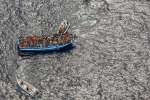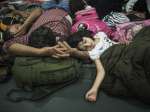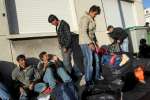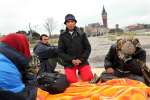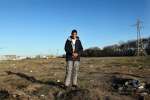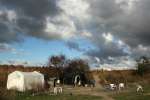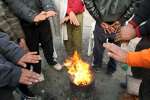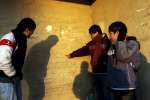- Text size
 |
|  |
|  |
| 
- Français
Award-winning film exposes the drama of mixed migration in the Mediterranean
News Stories, 15 February 2012
PARIS, France, February 15 (UNHCR) – UNHCR helped organize the Paris première this week of Italian director Emanuele Crialese's film "Terraferma," which tells the tale of a small Mediterranean island that struggles to cope with an influx of tourists and shipwrecked immigrants.
A joint French-Italian production, "Terraferma," won the special jury prize at last year's Venice Film Festival. It focuses on a small community of fishermen whose island is transformed by the intrusion of the outside world.
The community's way of life and their traditions are brought into sharp conflict with the authorities' desire to control irregular immigration by sea from North Africa. The fisherman's sacrosanct law of the sea – to always save human life in peril – is put in doubt by official directives not to aid illegal immigrants, and by some of the islanders who make a living from tourism.
"Crialese's film questions our society and all societies about how they respond to human distress," UNHCR Representative in France Philippe Leclerc told Tuesday's audience. "Crialese does this through his description of the reactions of a small community of fishermen on an island close to Sicily and through the different generations of a single family. What is at stake are the principles and values of the community and the responsibility of each individual to adhere to them or not."
The award-winning director, who attended Tuesday's showing with actress Timnit T, lamented that, "In Europe, there is a generalized fear of the other." He asked, "What are we afraid of? True civilization is about discovering and sharing."
Timnit T, who plays the role of a refugee woman in the film, is herself a refugee from the Horn of Africa. "The film has helped me to see my own story from another perspective," she said.
The actress undertook the dangerous crossing from Libya a few years ago and was lucky to survive. The dinghy on which she was sailing drifted at sea for 21 days. Of the more than 70 people on board the dinghy, only five were found still alive.
According to UNHCR estimates, more than 1,500 people drowned or went missing while attempting to cross the Mediterranean to reach Europe in 2011. This makes 2011 the deadliest year for this region since UNHCR started to record these statistics in 2006.
The screening was co-organized by UNHCR and the film's producers and distributors, Babe Films and Bellissima Films.
By William Spindler in Paris, France
















